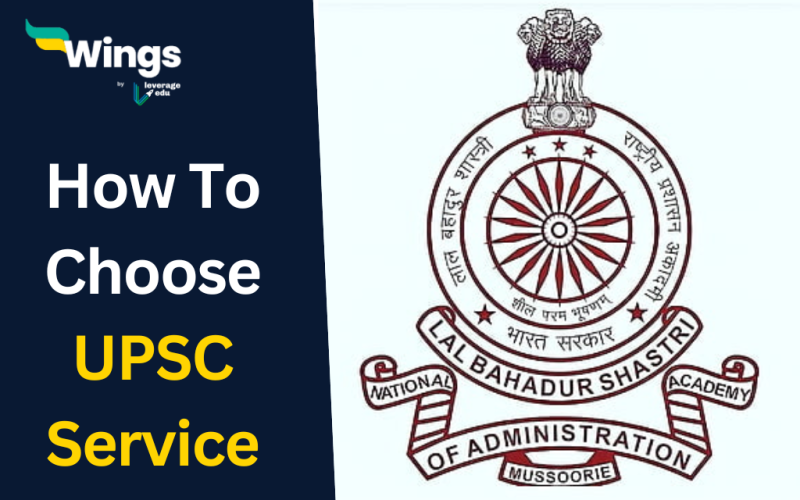How to Choose UPSC Service: The Union Public Service Commission (UPSC) conducts one of the most prestigious examinations in India, which opens doors to a lot of administrative services. We understand picking the right one for yourself in a pool of 21 UPSC services can be difficult. To make an informed choice, first understand the three broad categories of services: All India Services, Group A Services, and Group B Services.
Begin by getting to know yourself and determining your strengths, weaknesses, and learning style. Then, delve into the world of UPSC services to learn about the demands, challenges, and rewards of each. Examine your aptitude and interest in the service, as well as whether it fits with your lifestyle and work-life balance preferences.
Table of Contents
Understanding the Cadre Allocation System in UPSC
For UPSC aspirants, knowing about the cadre allocation system is crucial for a successful career in the civil services. Here are the available cadre zones:
The joint cadres or states are divided into five zones: Zone-1 to Zone-5.
Zone-1 (AGMUT, Jammu and Kashmir, Rajasthan, Haryana, Himachal Pradesh, Uttarakhand, and Punjab)
Zone-2 (Uttar Pradesh, Bihar, Jharkhand, and Odisha)
Zone-3 (Gujarat, Maharashtra, Chattisgarh, and Madhya Pradesh)
Zone-4 (Manipur, Nagaland, West Bengal, Sikkim, Assam-Meghalaya, and Tripura) and
Zone-5 (Andhra Pradesh, Telangana, Tamil Nadu, Karnataka, and Kerala)
Who Takes UPSC Interview: Get Panel Info
Understanding the UPSC Services
The UPSC Civil Services Examination offers a wide range of services, each with its unique responsibilities, challenges, and rewards. Before diving into the selection process, it’s crucial to understand the broad categories of services:
- All India Services (AIS): These include the Indian Administrative Service (IAS), Indian Police Service (IPS), and Indian Foreign Service (IFS). AIS officers hold prestigious positions in the central government and enjoy a high level of authority and responsibility.
- Group A Services: These services involve specialized roles in various fields, such as income tax, customs and excise, revenue, and postal services. Group A officers play a vital role in the administration and implementation of government policies.
- Group B Services: These services offer a range of opportunities in various departments, including education, engineering, and defense. Group B officers contribute to the smooth functioning of government machinery at various levels.
Factors to Consider When Choosing a UPSC Service
When selecting a service, keep your interests, skills, and lifestyle preferences in mind. To determine which service best matches your overall personality, conduct extensive research, speak with current officers, attend seminars and workshops, and conduct self-assessment.
To make an informed decision about your UPSC service preference, consider the following factors:
- Interest and Passion: Choose a service that aligns with your academic background, personal interests, and career aspirations. If you’re passionate about public policy, the IAS might be your ideal choice. If law and order fascinate you, the IPS could be a great fit.
- Skills and Abilities: Assess your strengths and weaknesses to determine which service matches your capabilities. If you’re an excellent communicator and problem solver, the IFS could be a rewarding path. If you excel in data analysis and finance, the IRS (IT) might be a suitable option.
- Lifestyle Preferences: Consider the work-life balance and lifestyle associated with each service. If you prefer a dynamic and challenging environment, the IPS or IFS might suit you. If you seek a more structured and administrative role, the IAS or other Group A services could be a good fit.
- Career Goals: Envision your long-term career aspirations and how the chosen service aligns with your goals. If you aspire to reach top leadership positions, the IAS offers a direct path. If you’re passionate about policymaking, other AIS or Group A services could be fulfilling choices.
Must Read: UPSC Exams: 2023 List, Eligibility & Selection Process
Additional Tips for Choosing Your UPSC Service
- Research Extensively: Read about the roles, responsibilities, and challenges of each service to gain a comprehensive understanding.
- Talk to Current Officers: Seek guidance from experienced officers to gain insights into the day-to-day work and realities of each service.
- Attend Seminars and Workshops: Participate in events organized by UPSC and coaching institutes to gain exposure to different services and interact with experts.
- Conduct Self-Assessment: Reflect on your personality traits, values, and motivations to determine which service aligns with your overall persona.
Civil Services Preference List
Here is the list that you need to keep in mind when filling out your DAF Form. Also Read: How to Fill DAF in UPSC? (Detailed Application Form) ✍️
All India Civil Services
- Indian Administrative Service (IAS)
- Indian Foreign Service (IFS)
- Indian Police Service (IPS)
Group ‘A’ Civil Services
- Indian Foreign Service (IFS)
- Indian Audit and Accounts Service (IAAS)
- Indian Civil Accounts Service (ICAS)
- Indian Corporate Law Service (ICLS)
- Indian Defence Accounts Service (IDAS)
- Indian Defence Estates Service (IDES)
- Indian Information Service (IIS)
- Indian Ordnance Factories Service (IOFS)
- Indian Communication Finance Services (ICFS)
- Indian Postal Service (IPoS)
- Indian Railway Accounts Service (IRAS)
- Indian Railway Personnel Service (IRPS)
- Indian Railway Traffic Service (IRTS)
- Indian Revenue Service (IRS)
- Indian Trade Service (ITS)
- Railway Protection Force (RPF)
Group ‘B’ Civil Services
- Armed Forces Headquarters Civil Service
- Delhi, Andaman & Nicobar Islands Civil Service (DANICS)
- Delhi, Andaman & Nicobar Islands Police Service (DANIPS)
- Puducherry Civil Service (PONDIPS)
- Pondicherry Civil Service
This was all about the “DAF in UPSC”. For more such informative blogs, check out our UPSC Exams Section, or you can learn more about us by visiting our Indian exams page.
 One app for all your study abroad needs
One app for all your study abroad needs













